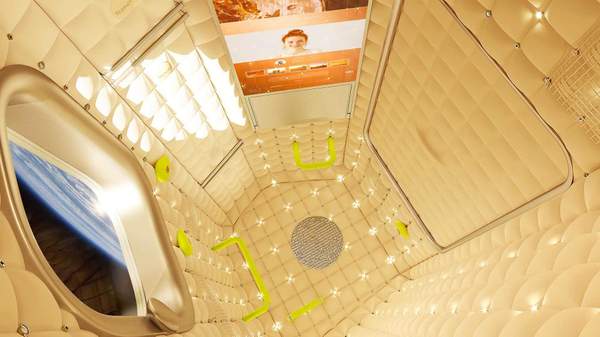Overview
Last year, the US National Aeronautics and Space Administration announced that it would start making space dreams come true, and not just for astronauts. As part of the organisation's increased commercial push, it revealed plans to allow tourists to spend time on the International Space Station. If you've ever wanted to hang out in an artificial satellite that's orbiting the planet — and you have spare piles of cash secreted away to pay for it, of course — you no doubt started getting excited.
Now, NASA has unveiled further details, naming just who'll be making the ISS's first habitable commercial module. And, that company — Axiom Space — has announced that it'll not only be creating its own commercial space station at the ISS, but also launching the first fully private human spaceflight mission to the station.
Folks with hefty bank balances who like staring down at the earth while travelling in luxury are in luck, with said space digs looking rather luxe. As approved last month, Axiom Space's ISS module is designed by French designer Philippe Starck — and while he actually revealed just what they'd look like back in 2018, now his vision has officially been given the go-ahead.
Think gold and cream hues, ample padding and exactly what everyone paying to holiday in space wants: a window with a helluva view. The designer said he wanted a fetal-like space that resembles "a comfortable egg, friendly, where walls are so soft and in harmony with the values of movements of the human body in zero gravity".
Axiom Space's ISS pods will host both professional astronauts and ordinary folks, attaching to the station's Node 2 forward port. They're due to join the ISS from the second half of 2024 and, when the ISS reaches its retirement date, Axiom's additions will be able to detach and fly free as its own commercial space station.
Also slated as part of Axiom's complex: an observatory with 360-degree views. If you're going to rocket into space, you'll really want to make the most of the view, after all.
While Axiom's Starck-designed module isn't due to be completed for four years, the company is aiming to launch its first private spaceflight mission to the ISS — the first ever by a commercial entity — by the second half of 2021. The flight's crew will live onboard the existing station for at least eight days. Afterwards, Axiom is planning to offer up to two flights per year, catering to both professional and private astronaut flights, all as the company builds its own private space station.
As for NASA's broader commercial approach, other than opening the ISS to commercial ventures in general — including to private tourist outfits like Axiom Space, who'll arrange the privately funded, dedicated commercial spaceflights for eager visitors, take responsibility for flight crews, and ensure that private astronauts meet the necessary medical and training requirements — the idea is to create "a thriving commercial economy in low-earth orbit". Ideally, businesses will be able to operate out of the station. While more than 50 companies are already involved with the ISS, their work is currently restricted to research and development; however that'll no longer be the case.
Images: Axiom / Philippe Starck.
